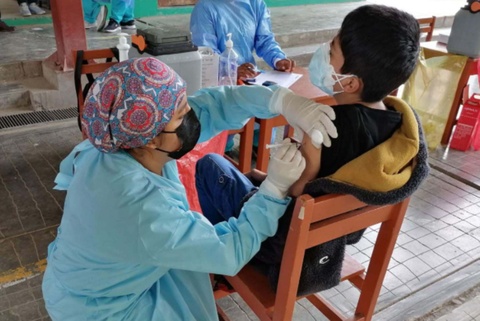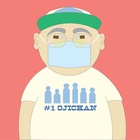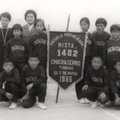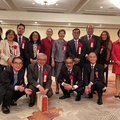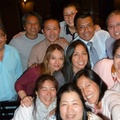We are already going through the two years of the pandemic and those first weeks of confinement, when people applauded the health workers from their homes for their extraordinary work and naively said that from this disastrous experience we would emerge better people, more united and supportive, They seem like times from a previous life.
Today, with rich countries hoarding vaccines while a new variant emerges in Africa, millions of people dead and crowds rejecting masks or getting vaccinated even though they save lives, no one thinks of proclaiming that we are going to come out of this better.
What has happened to us? Psychologist Irene Yamada maintains that at the beginning of the pandemic, most people were not aware of the seriousness of things. Whether we have learned anything (or not) varies according to personal experience.
“Each of us has experienced physical isolation in different ways and it will depend on our ability to adapt, resilience and flexibility to come out of this situation 'better',” he explains.
Influencing factors? “If we have been infected and how serious the symptoms were, if we lost a loved one, if we lost our job, etc. There are people who have experienced it as a confinement, like 'being in jail', they told me; In others, their emotional problems worsened, which before the pandemic they endured through social interactions or doing activities outside the home.”
On the opposite shore are those who have managed to extract gold from the depths. Confinement has not equaled incarceration. Quite the contrary, "it has helped them to get to know each other better, to enhance or develop some personal aspects, to live together and enjoy the company of the family."
After surviving a horrible second wave of coronavirus, the incidence has provisionally fallen to a minimum in Peru and many people are currently leading a life that could be described as normal (attending social gatherings, filling restaurants, traveling, etc.). Is this normality deceptive or apparent in the sense that behind it lies the pain or trauma of a deceased relative, the desperate search for oxygen or the loss of a job? Is it possible that all of this, sooner or later, will take its toll on us?
The Nikkei psychologist considers that the behavior of these people "is a consequence of the time we have remained physically isolated, since we are social beings. Interaction is necessary, and in Peruvian culture physical contact (greeting, a hug, talking face to face) to face, etc.) was something everyday that helped us feel good, to release tension and stress.”
“Another aspect is that many are already tired of staying at home, in the same space, with the routine that becomes monotonous or the coexistence that is generating friction between members,” he adds.
Likewise, there are people who look for “distractors” as a means to manage difficulties.
In any case, whether there are reasons or others that drive this “normality,” the specialist warns of the bills that could fall on us if “we go to extremes, that is, I forget to follow biosafety care or we do not consider the uncertainty that the pandemic brings in different areas (personal, work, economic, social, etc.) and I think I can continue the same as I did before the pandemic.”
“Things should not be the same as before the pandemic because it would mean that I have not learned anything during all this time,” he emphasizes.
THE NIKKEI AND THE VALUE OF COMMUNITY
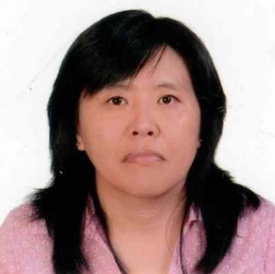
One of the things that has always stood out about the Nikkei community in Peru is its solid group spirit, and Irene Yamada believes that this has been palpable during the pandemic: “One of the many values that I admire about the Japanese is the sense of community, solidarity, and that as Nikkei has been transmitted to us naturally by our ojiichan, obaachan, parents, and that is part of our lifestyle. I have been observing the above during the pandemic, thinking about mutual benefit rather than the individual.”
The sense of community has transcended words or good wishes to be expressed in concrete actions. “Different community institutions have sought to carry out various activities to help others, from collections, ventures where different homemade products were offered, health support through different campaigns, webinars on different topics, providing free courses, even recreational and cultural activities,” says the psychologist.
Another of the great assets of the Nikkei community is trust. In times when there were scams in – to cite one case – the acquisition of masks when they were in short supply at the beginning of the pandemic, trusting a Nikkei supplier was essential. Trust generates support networks that in extreme situations can even save our lives.
“I think that the sense of community helps us make the support networks within the Nikkei community a very great support for people. I have observed it since I was little, in tanomoshi meetings, for example, that it was not only getting together to give or receive the money you were given, but also to share and talk. In the group that I participate in, for example, we have continued meeting to do karaoke via Zoom. Solidarity has been seen by raising money to support a person, collaborating by buying a raffle or products sold by some Nikkei institutions or people.”
EMOTIONAL EDUCATION FOR THE FUTURE
The worst of the pandemic seems to be behind us. However, we must not let our guard down. You never know. Now, even if it were true that the monster will not resurrect with the destructive force of before, its passage is leaving deep consequences: pain, trauma, loss. How do we deal with them?
“The first thing we have to recognize is if the pain, trauma or loss is affecting me in my daily life: if I am more or less sleepy than before, I have recurring nightmares, insomnia, eating more or much less, difficulties concentrating or enjoying the things that I liked before,” he responds.
“We have to accept that something painful or difficult to handle happens to us, and from that point on, do something to feel a different emotion that helps us be calmer. For example, if I am sad, do or see things that make me happy, that distract me. If I am stressed or anxious, learning meditation or mindfulness exercises helps a lot to have peace of mind, learn different ways to deal with stress, learn to regulate emotions and thoughts," he adds.
We don't necessarily have to face adversity alone. It also helps us to “have a social support network, talk with family or friends through different media.”
Likewise, rituals can have beneficial effects. And the Nikkei community is lavish in them. “When faced with the loss of a loved one, performing some ritual at home helps to manage the loss. For example, the custom we have of carrying a butsudan (lighting an osenko, putting food and drink, flowers, etc.), writing a letter farewell,” he details.
If the blow is so strong that meditation, loved ones or rituals are not enough to mitigate it or recover, then it is best to consult a mental health professional, says Irene.
Whether the worst is over or not, the next pandemic could be more lethal than the current one, Professor Sarah Gilbert, one of the creators of the Oxford-AstraZeneca vaccine, has warned.
This being the case, we must be prepared not only from a health, economic or social point of view, but also emotionally. The Nikkei psychologist proposes instilling emotional education from an early age so that people are equipped to face various scenarios in the future.
“Emotional education is something that has been encouraged for several years and based on everything that has been observed due to the pandemic, it is very important to teach and develop it. Educating children emotionally is a task that begins in the family and continues through education in schools.”
What are you looking for? “That they learn emotional skills that help them face stress more calmly and have more balanced emotional responses (all emotions are good, some pleasant and others not so pleasant to feel); That is, they can express it in the best way without harming themselves and without harming others (that should be our limit).”
Emotional education aims to ensure that the person “has personal and social well-being at different stages of their life. Every day it is said that one has to look for happiness and it really is not like that. "You have to recognize the emotion you feel, express it appropriately because what you want is for the person to regain balance, and from that they can make the best decisions for their life."
© 2021 Enrique Higa Sakuda


